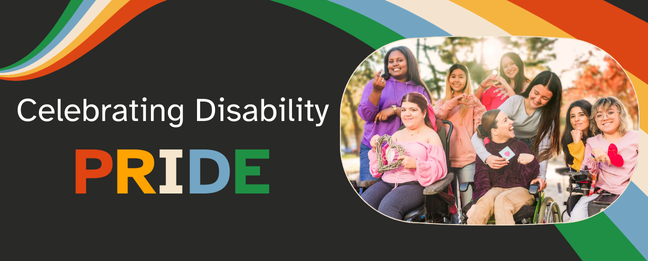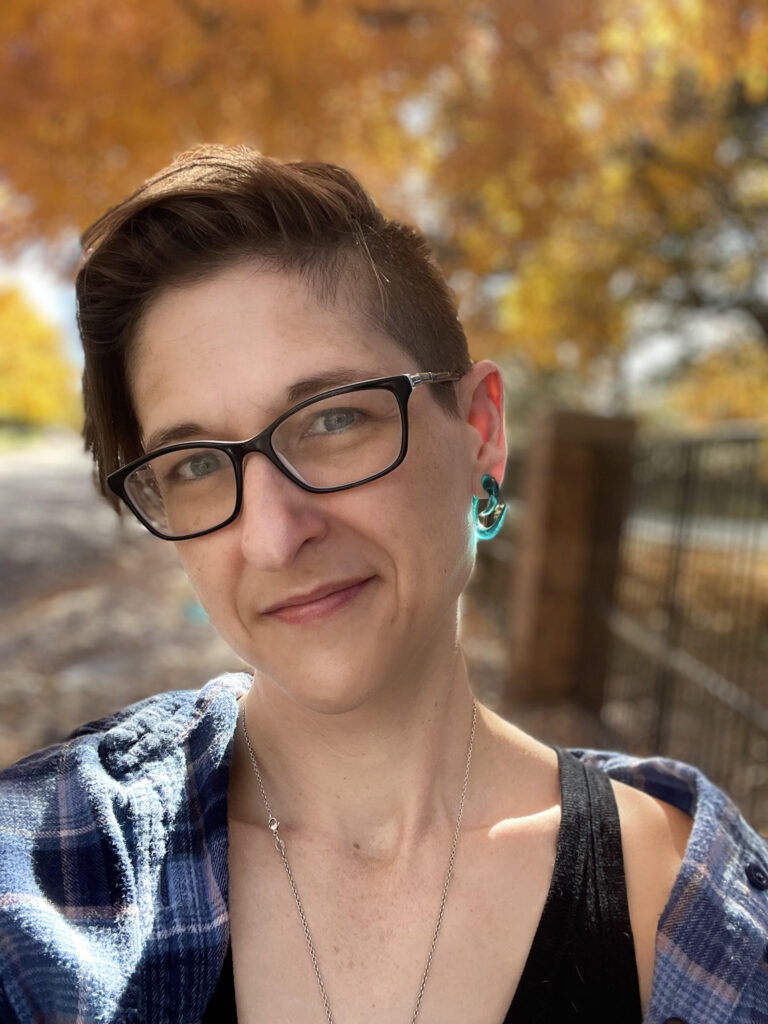Taking Charge of Your Story: Why Representation Matters
by Blog Writers

By Christina Gann
The first time I ever encountered a queer narrative in a video game was The Last of Us in 2013. The main game was released in June during LGBTQIA Pride month but did not include an openly queer narrative released in the main story playthrough. It was a prequel, an add-on character story that you needed to purchase separately after the release of the main game. When I started up that game, I had no idea that the story they were going to include for the main character Ellie William would have such a profound impact on me. The story took you on a heartfelt journey with Ellie’s best friend Riley that concluded with Ellie’s first kiss … and she kissed *gasp* Riley?! … another girl!
I was over the moon. I couldn’t hold back my tears and felt a sense of connection to this story and to the world around me in that instance. I cried because I felt validated and connected to this storytelling even if I had never experienced a queer teen romance of my own. Ellie was me. Teen romances are universal, a part of the human experience. To look for companionship and emotional security in another person is an experience that surpasses color, sexuality, ability and telling stories that include these universal experiences with diversity and inclusion weaves a tapestry interconnecting us as humans.
As rare as the queer perspective is in video games, good representation of people with disabilities is even rarer. Rich, diverse stories of characters with disabilities are desperately needed in mainstream media. Accurate representation is key to destroying limiting beliefs about the lives of people with disabilities. Stereotypes and false beliefs created by misrepresentation give a false impression of what it’s like to live in the world with a disability, creating disconnect and isolation. Disability is still regularly served up as a trope to invoke fear in the horror genre in both video games and cinema. Sending a message that disabled people should invoke fear instead of celebrating the life of the individual and the way they approach the world in different ways. This needs to be replaced with characters and stories that resonate differences to be celebrated.
 When I was a young adult, my family and I would go to medical conventions to learn new information and technologies that could help accommodate my needs while living with short gut syndrome. Short gut syndrome is so rare that these conventions were the only way that I ever got to see or meet other people who lived a similar experience to my own. I felt included, accepted and understood more there than anywhere else. Meeting all these young people like me who had the same challenges, the same desires, same hopes made me see that it was all possible if I was allowed to exist without the constraints and limitations put on me.
When I was a young adult, my family and I would go to medical conventions to learn new information and technologies that could help accommodate my needs while living with short gut syndrome. Short gut syndrome is so rare that these conventions were the only way that I ever got to see or meet other people who lived a similar experience to my own. I felt included, accepted and understood more there than anywhere else. Meeting all these young people like me who had the same challenges, the same desires, same hopes made me see that it was all possible if I was allowed to exist without the constraints and limitations put on me.
Seeing representation of yourself is healing, especially when you exist outside the boundaries of the status quo. To be able to relate and identify with the rest of the world is profoundly interconnecting. Everyone wants to feel seen, everyone thirsts to be understood and accepted as they are. When we tell stories with accurate representation, we create an understanding, and through understanding, we create unity. The stories we tell, the way in which we represent ourselves to each other is so vital to the way in which we relate to each other face to face.
We believe what we see and this becomes our reality. I was taught at a very young age that being different meant danger. That being disabled meant that you were limited in what was possible. That accepting disability meant accepting defeat. I grew up as a witness to a world that mistreated, misrepresented and abandoned the disabled. I struggled to relate what I saw to how I felt growing up disabled. I didn’t feel like I was limited but that the world was not made for people like me. I remember going into my school counselor’s office and being told what I was capable of achieving. What was possible and what was not going to happen for me given the limitations she created for me out of assumptions fueled by societal views. I was force fed my limitations on a platter with no exceptions. Without allowing me to determine my path and how I would approach life in my own unique way. Without giving me a chance to thrive.
I went on to dismantle every limit put in front of me. I have done things I was told were impossible.
Someone told my story, someone else limited my potential and capabilities without my permission. No one should have their story stolen or misrepresented. Misrepresentation creates false images and harmful stereotypes of people and their lived experiences. We are still fighting for accurate representation at the intersection of queer and disabled. To have a hand in telling our own stories is vital to diverse and suitable representation that changes how we are viewed and treated in the world.
When we leave room for all stories to be told, we open the door to alternate reality, one that aligns with our humanity, compassion and understanding. No one should have their story or their potential snatched away. We all deserve the chance to thrive and live out loud and proud of all that makes us who we are. Diversity, accurate representation and inclusion bridges the gap between what we think we know about each other and what connects us to each other, including us all in the conversation.
Advocacy makes our stories and existence visible and we are infused back into the pack as one community supporting one another through our individual experiences. When you are ready, tell your story as loudly as you can because I assure you, someone out there needs it so that they can have the courage to tell their own.
Christina Gann is a content creator, artist, and scientist based in Colorado. They love horror movies, gaming with friends, and their dog, Oreo. You can follow Christina on Twitch, TikTok, Instagram, and X.
Read Christina’s other blog, Finding Pride at the Intersection of Disabled and Queer.






